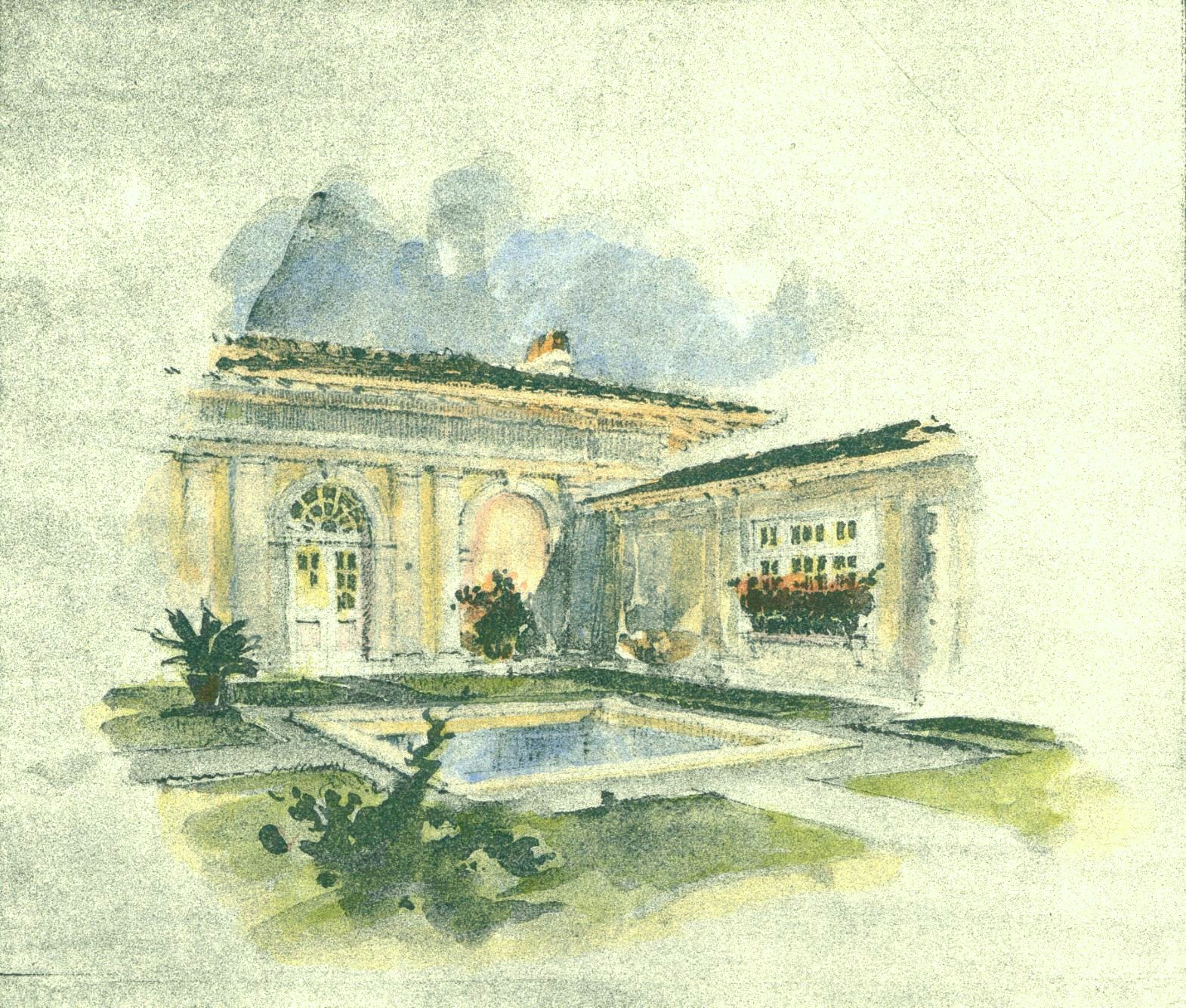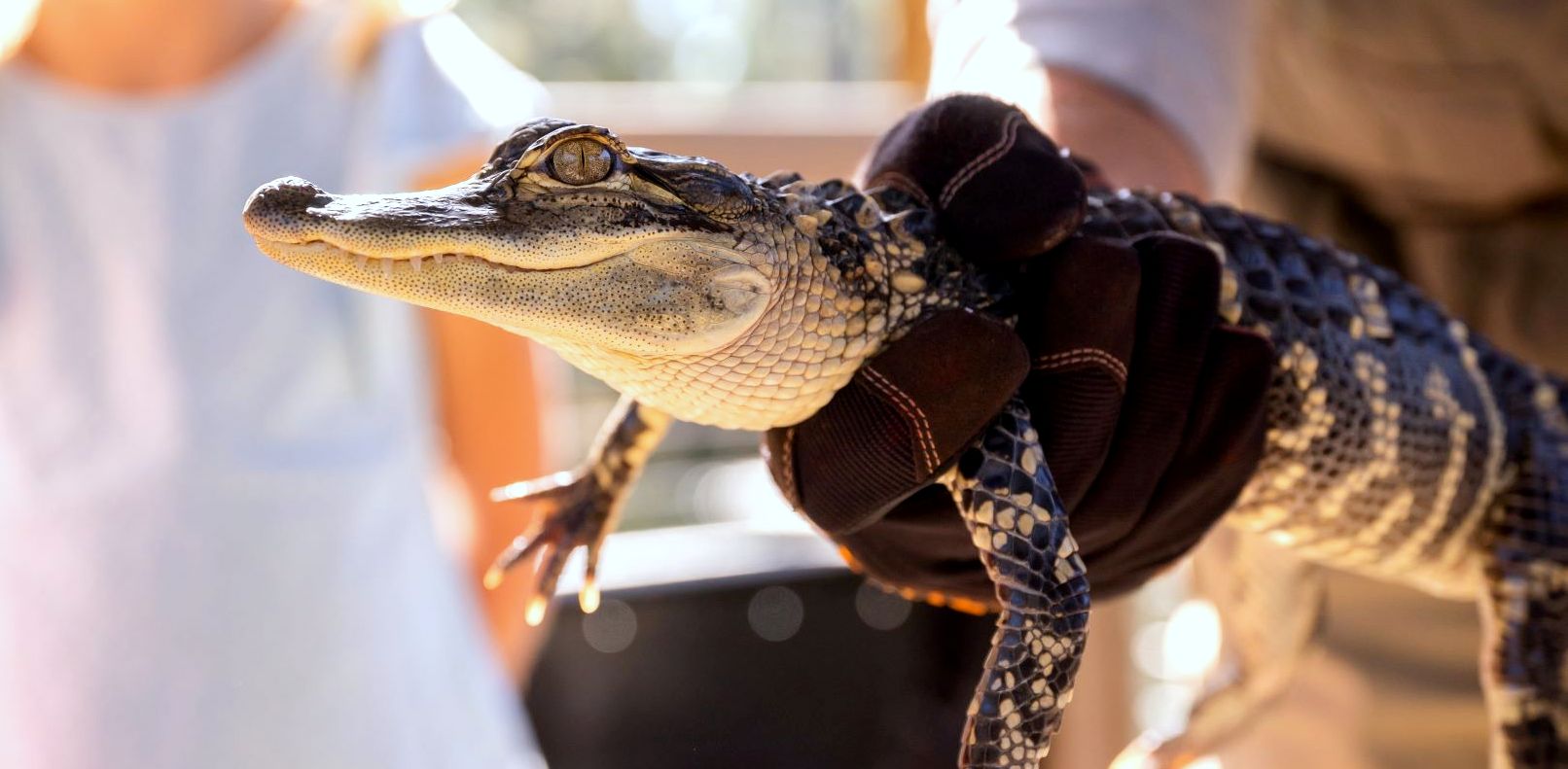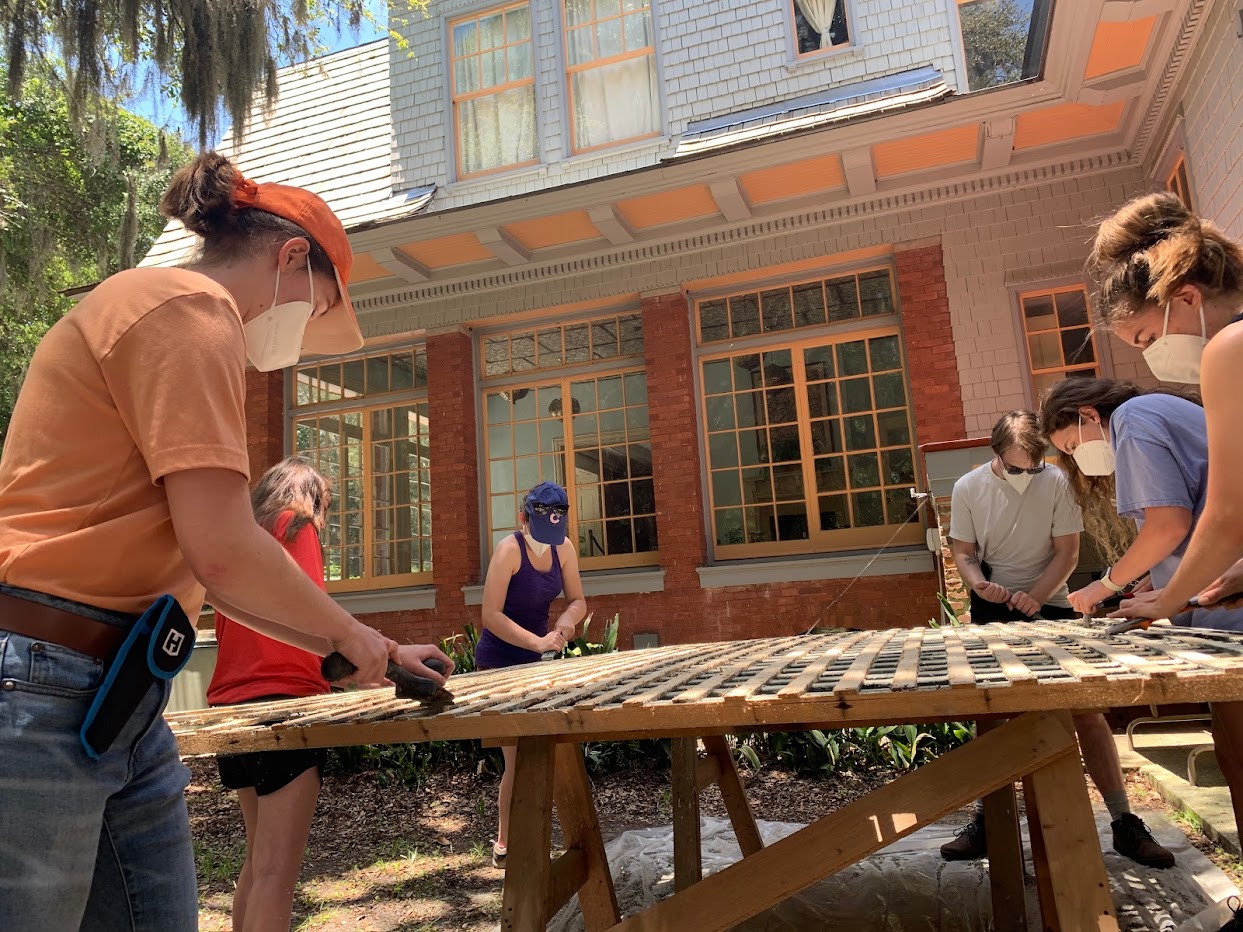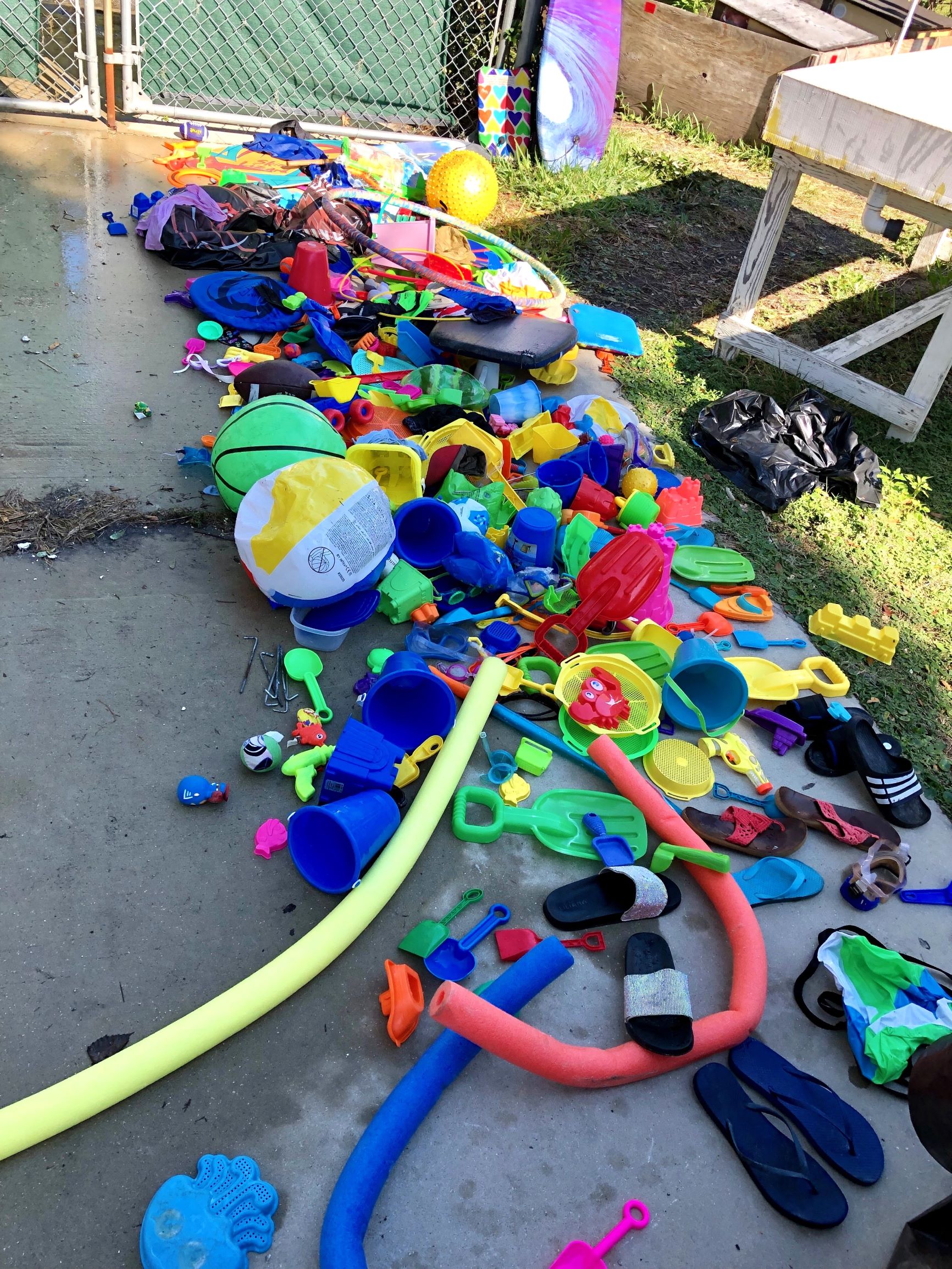By Taylor Davis, JIA Historic Preservationist
Ever since the waning days of the Jekyll Island Club, Chichota Cottage has been a site left to ruin. The original house was constructed in 1897 by David H. King, Jr. of New York. King was a notable contractor whose projects included the base of the Statue of Liberty, Madison Square Garden, and the Washington Arch.
King built his unique cottage on Jekyll Island as a single-storied, Italian Renaissance house surrounding a central courtyard, complete with a swimming pool fed by an artesian well. After the property was severely damaged in 1898 during one of the worst hurricanes in Jekyll Island history, King sold Chichota to Edwin Gould just three years after construction.
The Goulds enjoyed their winters at Chichota until the 1917 season, when they lost their eldest son in a hunting accident on nearby Latham Hammock. After years of vacancy, the house fell into disrepair. It was razed by the Jekyll Island Club in 1941, leaving only the tabby foundations and an empty pool guarded by two marble lions flanking the entry steps. See Lost Jekyll or Pieces of History, pages 56/57.
In recent years, a series of improvements were made to the site to increase guest accessibility and safety amidst the ruins. As part of this first phase of rehabilitation beginning in 2019, an ADA ramp was constructed to provide access into the ruins, the former entry foyer of the house was paved, and the pool was partially filled to create an outdoor venue and classroom space, with the edge of the pool serving as seating for gatherings.
A generous gift to the Jekyll Island Foundation funded the second phase of rehabilitation in 2020. This phase focused on the rehabilitation of what was once Chichota’s enclosed courtyard. With the help of volunteers and Historic Preservation Field School students from the University of Georgia, the original quarry tiles were removed and salvaged from the courtyard. A new masonry base was poured, and a mix of original and reproduction quarry tile was laid on top to replicate the original courtyard paving plan.
As this second phase of the project comes to a close, enhancements to the Chichota site have created a safe and attractive venue for exploration, education, and special event rentals. Additional improvements are planned for the future to reestablish other areas of the house and fashion outdoor patio spaces.
Today, the Chichota ruins remain a captivating point of interest for visitors to explore and enjoy. Visit Mosaic, Jekyll Island Museum to begin your island explorations or plan your special event in the historic district.




